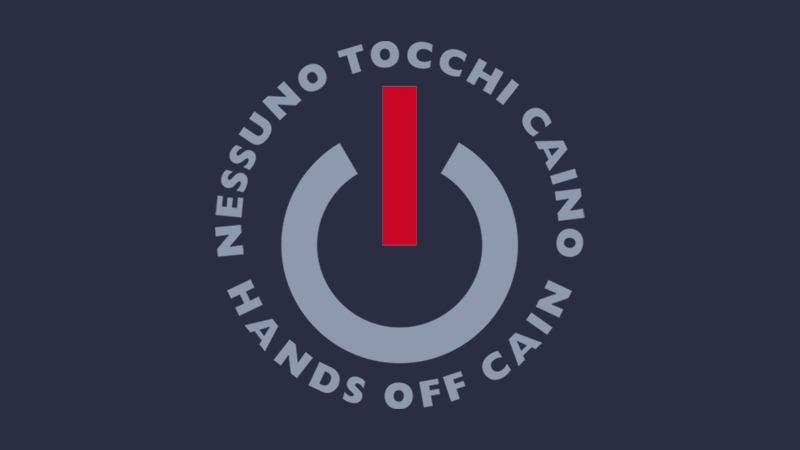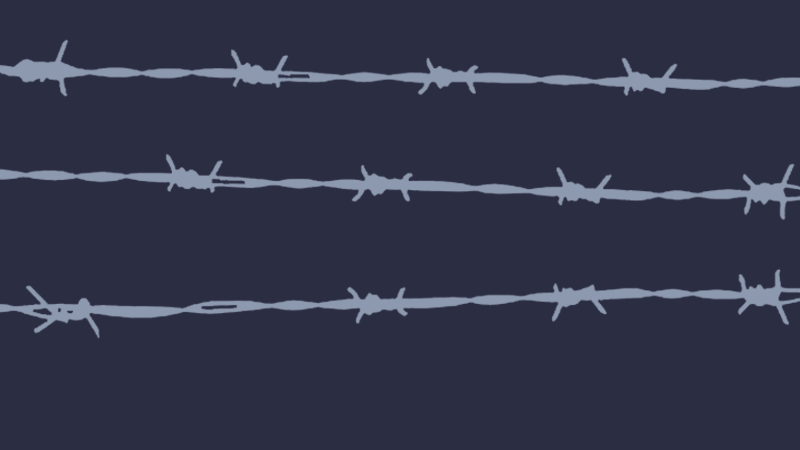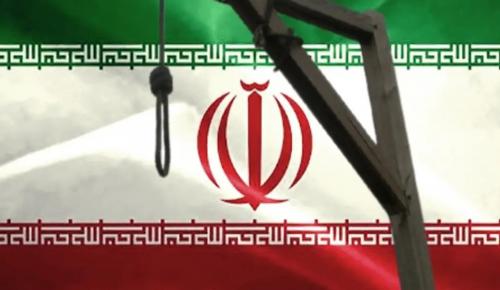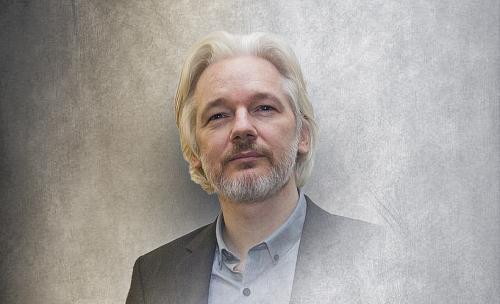situation:In its 2001 report to the UN Human Rights Committee (HRC) the government of North Korea claimed that it had reduced the number of criminal offences carrying the death penalty from 33 to 5. However, the HRC noted that 4 of the 5 offences were essentially political and “couched in terms so broad that the imposition of the death penalty may be subject to essentially subjective criteria, and not confined to the ‘most serious crimes’ only.”
Death penalty for non-violent crimes, and for political motives and dissent North Korea denies holding any political prisoners. Its official media say there are no human rights issues in the communist State where everybody leads “the most dignified and happy life.”
The five capital offences are conspiracy against the state power, high treason, terrorism, anti-national treachery and international murder. However, people were reportedly condemned to death for such “crimes” as “ideological divergence,” “opposing socialism,” and “counterrevolutionary crimes.” Political prisoners, peaceful opponents, deserters or repatriated defectors, those who listened to foreign radio broadcasts and those found in possession of so-called “reactionary” material have been shot.
In late 2004, Officials at Seoul's spy agency, the National Intelligence Service (NIS), confirmed a news report saying North Korea had revised its criminal code on April 29, 2004. Under the new code, North Koreans found guilty of organizing insurgencies against the government would be sentenced either to death or to life in one of the country's notorious labour camps. Previously, the penalty was 10 years of hard labour or the death sentence. Defectors, defined as those "who betray the fatherland and run away to other states," were previously jailed for up to 10 years. That ceiling had been lifted and they could be jailed for life or executed, though they must be sentenced to a minimum of five years under the new law.
On 1 March 2006, the authorities of North Korea issued a special decree which provides for the death penalty for those packages and traffics drugs and replace the new criminal code adopted by North Korea in 2004.
According to a set of addendums to the “DPRK Penal Code” adopted in 2007 that leaked out of North Korea, execution is permitted for some ordinary crimes in addition to those stipulated by the full penal code itself. For instance, in cases of currency forgery, the full penal code stipulates more than 10-years of labour re-education, or indefinite re-education in serious cases, but one of the addendum articles also states, “Under extreme circumstances, one can be subject to execution.” Although these articles were adopted in 2007, they were not publicized to the outside world. Seventeen out of the 23 articles contained in the document, called the “DPRK Penal Code Additional Clauses (ordinary crimes),” legalize execution for “especially serious cases” of certain crimes, while the full penal code only stipulates execution for four crimes of a treasonous nature, not for ordinary crimes.
The Presidium of the Supreme People’s Assembly (SPA) adopted the addendum articles in the form of Ordinance No. 2483 on December 19th, 2007.
Article 1 stipulates, “For extreme acts pertaining to combat resources and the intentional destruction of military facilities, execution is permissible." The existing penal code, however, only stipulates that “under particularly heavy circumstances, a sentence of more than 10 years labour re-education or indefinite labour re-education is appropriate.”
Other crimes that are deemed to be grave enough to warrant execution under the addendum articles include: plundering and theft of national assets, destruction/damage to national assets, currency fraud, intentional defamation, kidnapping, rape, theft of private assets, smuggling of metals, smuggling of the nation’s natural resources, drug smuggling, and taking bribes for sex trafficking.
Importantly, Article 23 stipulates an indefinite labour re-education sentence or execution if an individual commits a number of serious crimes, or does not show acceptable signs of guilt or reform. In the mid-1990s, extra-judicial public executions took place of those found guilty of committing crimes such as the theft of cows or food, crimes which were actually happening in all areas of North Korean society. After the enactment of Article 23, however, the form of punishment has become possible within the judicial process. As Article 23 makes clear, the penal code does not regard specific criminal acts with hostility, but makes execution permissible ‘under heavy circumstances’ or for ‘incorrigible persons’ in general. If this is the case, then execution sentences can in theory apply to all offenses, which is a serious violation of established legal principles, albeit that such violations are not new in North Korean legal practice.
In criminal code revisions made in mid-May 2013, harsh punishments were decreed for a loose group of acts deemed to be seditious, including political agitation, rioting, and public demonstration.
At the beginning of 2014, the North Korean authorities added five extra clauses to Article 60 of the country’s criminal code, which pertains to attempts to overthrow the state. The additional clauses codify harsh punishments for acts including illicit communication with the outside world, which could in principle now incur the death penalty. A source based in North Hamkyung Province told Daily NK that “a directive notifying us that the criminal code had changed was conveyed via workplaces earlier in the year. They said that five new clauses have been added to Article 60, and that punishments for each were similar or worse that they had been.” The newly re-codified offences include: illegal phone contact with foreigners, including South Koreans; viewing South Korean dramas or DVDs and listening to [foreign] radio broadcasts; using or dealing in drugs; transnational human and sex trafficking; aiding and abetting defectors and leaking state secrets. A minimum of five years “re-education” or the death penalty can be decreed for those caught communicating with the outside world; a minimum of 10 years re-education is the punishment for simply watching South Korean media or listening to foreign radio; and a minimum of five years re-education is possible for drug smuggling.
In North Korea five Stalinist-style labour camps (kwan-li-so) areas still operating, holding between 80,000-120,000 inmates: No. 14 (Kaecheon, South Pyongan Province), No. 15 (Yoduk, South Hamkyung Province), No. 16 (Hwasung North Hamkyung Province), No. 18 (Bukchang, South Pyongan Province), and No. 25 (Chongjin, North Hamkyung Province). North Korea’s political prison camps are divided into “Revolutionary Zone,” where prisoner families and accomplices are imprisoned and can be released after a period of confinement, and “Completely Controlled Zone,” where ‘criminals’ are imprisoned for life.
Inmates at the gulags are reportedly forced to work more than 10 hours a day and denied access to medical care, receiving only 100 to 200 grams of food rations, while the North Korean food ration for children up to age four is set at 234 grams. The inmates include not only political opponents or those who lost out in political struggles, but also ordinary people who were penalised for making disrespectful remarks about the North Korean leaders. Political prisoners caught while attempting to escape are subject to public execution in front of all other inmates at the site. In addition, female inmates are frequently raped.
Persecution of adherents to religious and spiritual movements According to its constitution, North Korea guarantees freedom of religion. The Constitution also stipulates, however, that religion “should not be used for purposes of dragging in foreign powers or endangering public security.” In reality, the regime severely restricts religious observance, authorizing four State churches: one Catholic, two Protestant and one Russian Orthodox. However, they cater to foreigners only, and ordinary North Koreans cannot attend the services. Other public and private religious activity is prohibited and anyone discovered engaging in clandestine religious practice faces official discrimination, arrest, imprisonment, and possibly execution.
Still, more than 30,000 North Koreans are believed to practice Christianity in hiding – at great personal risk, defectors and activists say. In a May 2009 report, the U.S. Commission on International Religious Freedom cited defectors as saying an estimated 6,000 Christians are jailed in “Prison No. 15” in the north of the Country, with religious prisoners facing worse treatment than other inmates. North Korea continues to persecute Protestants, Catholics, Buddhists and members of clandestine Christian churches. Christians are imprisoned, beaten, tortured and killed for reading the Bible or preaching about God, and particularly for having ties with evangelical groups operating across the border in China.
The trend in the Government’s respect for religious freedom did not change significantly during 2016. The Government continued to repress the activities of unauthorised religious groups.
In January 2012, a document entitled ‘Strengthen the Border Zone and Raise Consciousness Levels to Enhance the Dignity of Our Socialism’ was released by the Chosun [Korean] Workers’ Party Publishing House, and has been used in lectures to civilians. The death penalty is the right answer for those who betray the people of North Korea and the Socialist revolution. For the first time since the founding of Kim Il-sung’s regime, an official document by the Chosun (Korean) Workers’ Party asserts this principle to remind North Koreans what awaits them should they think about fleeing. This comes at a time when the rise of Kim Jong-un, third son and heir to the ‘dear leader’, appears to be pushing many North Koreans to leave the Country, the DailyNK reported. As is consistently the case in North Korea, the document appears to be based on the late Kim Jong-il’s supposed “last instructions”, whereby “The thorough sealing of the border is one of the responsible and important tasks in the realization of the General’s last instructions.” “The high political consciousness of the border people is not an operational issue; it is the weightiest and most honourable task in protecting our socialism and defending the heads of the revolution with our very lives from their foul schemes,” it said.
Top secret death There are no official records available on the death penalty from the Government or reports in the newspapers. Some reports have been secreted out of the country.
After a decline starting in 2000 amid international criticism, North Korea resumed frequent public executions, targeting officials accused of drug-trafficking, embezzlement and other non-violent crimes, and North Koreans who attempted to cross into China or South Korea in search of food and to avoid political oppression.
North Korea executed 1,382 people between 2000 and 2014 for a broad array of crimes that ranged from anti-state activities to viewing South Korean pornographic material. The statistics were included in an annual research report from the Korea Institute for National Unification that compiled accounts from 221 North Korean defectors who arrived in South Korea in 2014, South Korean news outlet Newsis reported.
Executions in North Korea would be increased in an attempt to strengthen the regime during the period of transition to power of Kim Jong-un, designated to succeed his father Kim Jong-il, which occurred on 18 December 2011, the day after his father’s death.
In 2013, there were reports of executions to discourage the practice of cannibalism linked to the extreme poverty in the country.
In 2006 Hands Off Cain recorded 3 executions, and at least 13 in 2007, 77 in 2008, 11 in 2009, 60 in 2010, 30 in 2011 and 4 in 2012. In 2013, North Korea carried out at least 17 executions for non-violent crimes and essentially political motives, and at least 2 more executions for non-violent crimes occurred in the first six months of 2014.
In 2015, North Korea carried out at least 13 executions for non-violent crimes and essentially political motives. In 2016, these executions were at least 70.
North Korea has executed or purged a total of 340 high-ranking officials and residents since leader Kim Jong-un took control of the communist country in 2011, according to a white paper released on 29 December 2016 by the Institute for National Security Strategy (INSS), a South-Korean think tank. "The number of executions and purges of executives increased rapidly from 3 people in 2012 to 30 in 2013, 40 in 2014, and 60 in 2015," the paper states. Kim Jong Un temporarily halted purges since the execution of former defence chief Hyon Yong Chol in 2015, but resumed by executing three high-ranking officials in 2016, the report reads. The young leader has reportedly executed approximately 140 high-ranking officials to date. Executives have faced various charges from improper behaviour and corruption, to suggesting a differing opinion, and "anti-Party activities." According to the INSS white paper, the number of people executed publicly in 2016 was about 60 as of August. The number of people publicly executed by the regime reportedly reached 64 by September, according to South Korea's National Intelligence Service (NIS).
United Nations On 17 February 2014, the UN Commission of Inquiry on human rights in the Democratic People’s Republic of Korea (DPRK) released its report, which has documented in great detail the “unspeakable atrocities” committed in the country, a number of which, it concludes, are likely to be deemed crimes against humanity. While North Korea denies the system of so-called kwanliso secret prison camps even exists, the Report says testimony from survivors and guards, coupled with satellite imagery, constitutes overwhelming evidence. It estimates that between 80,000 and 120,000 political prisoners are still held in the camps, many “disappeared”, meaning their families never knew where they had gone or what happened to them, even if they died in detention.
In a 400-page set of linked reports and supporting documents, based on first-hand testimony from victims and witnesses, the UN Commission of Inquiry describes a brutal and inhuman regime in the camps, with systematic torture, executions, rape and “the denial of reproductive rights enforced through punishment, forced abortion and infanticide.” In such ways, it concludes, hundreds of thousands of people are believed to have died in the camps over the decades. The report includes a letter sent by the Commissioners to the Supreme Leader, Kim Jong-un, warning he could face trial before the International Criminal Court for crimes against humanity.
On 1 May 2014, North Korea was reviewed under the Universal Periodic Review of the UN Human Rights Council. The Government agreed to examine – among others –recommendations to establish an immediate moratorium on the death penalty as a first step towards its final abolition, withdraw the mandatory nature of the death sentence, publish detailed statistics on the death sentence and on executions, but did not provide a response on those issues at the 27th session of the Human Rights Council in September 2014.
On December 17, 2018, North Korea once again voted against the Resolution on a Moratorium on the Use of the Death Penalty at the UN General Assembly.










